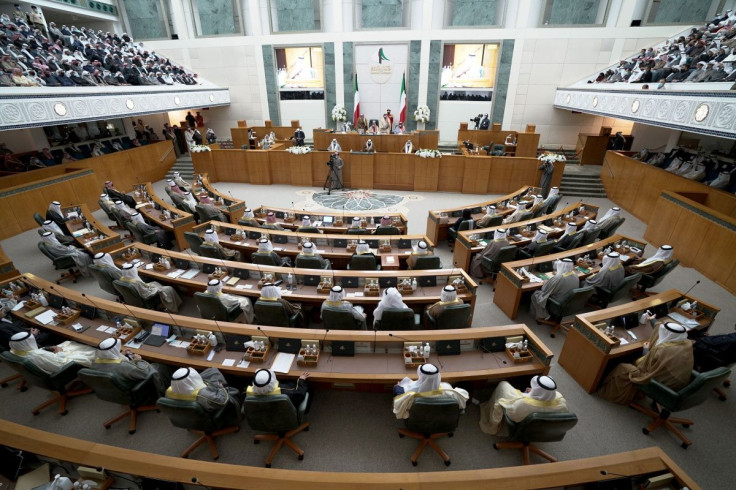Kuwait Opposition Lawmakers Stage Sit-in To Press For New Government

Several Kuwait lawmakers are staging an open ended sit-in inside the parliament complex to press the Gulf state's crown prince to appoint a new government after a caretaker administration resigned over two months ago in a standoff with parliament.
The protest began on Tuesday, at the same time as a special session to discuss a social security bill, with more than a dozen opposition MPs gathered in a room in a building adjacent to the National Assembly that lawmakers use to work and rest.
Parliamentarians Alsaifi Alsaifi and Mubarak Al Hajraf said in separate Twitter posts that the protest was to reject "political paralysis" and "disruption of the constitution".
"We chose to protest inside our offices in a peaceful and civilised expression far away from any clash or massing of people who may face harm," fellow lawmaker Muhannad Al Sayer tweeted, with a picture of the seated men.
A website was launched with a clock marking the start of the sit-in. The government has not issued a statement about the protest and a government spokesperson was not immediately available for comment.
Kuwaiti Crown Prince Sheikh Meshal al-Ahmad al-Sabah on May 10 accepted the resignation submitted by the government more than a month earlier, but has yet to name a prime minister to form a cabinet for approval.
The government resigned ahead of a non-cooperation motion against the prime minister in the elected parliament in a lengthy feud that has hindered fiscal reform in the OPEC oil producing country.
Sheikh Sabah al-Khalid, prime minister since 2019, has faced a combative legislature as head of cabinet, with opposition MPs bent on questioning him over issues including perceived corruption.
Political analyst Nasser Al-Abdali said the protest aimed to press for the appointment of a new prime minister so parliament can return "to normal regularity of holding sessions".
Kuwait has given its assembly more influence than similar bodies in other Gulf monarchies, including the power to pass and block laws, question ministers and submit no-confidence motions against senior government officials.
© Copyright Thomson Reuters 2024. All rights reserved.







